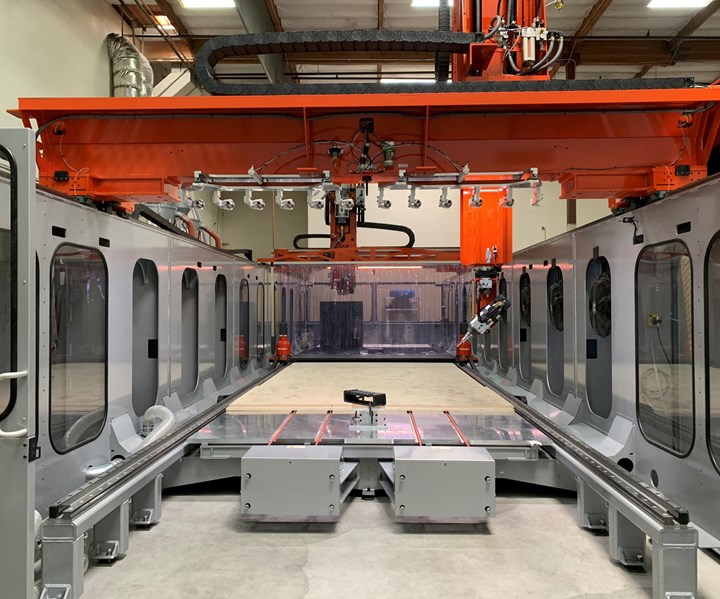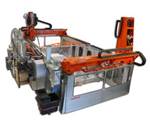Ascent Aerospace invests in large-format AM machine
The LFAM machine will enable fabrication and delivery of production-ready fixtures and molds at significantly reduced lead-times.

Ascent's large-format additive manufacturing machine. Source | Ascent Aerospace
The provider of production and automated assembly systems for the aerospace, defense and space industries, Ascent Aerospace (Macomb, Mich., U.S.) reported on May 19 that its large format additive manufacturing (LFAM) machine is installed and operational in Santa Ana, Calif., U.S., co-located with Ascent's composites tooling shop, autoclave and cleanroom.
Investing in the machine in summer of 2019, the LFAM machine will provide customers in aerospace, automotive, maritime, energy and other industries the opportunity to benefit from large-scale printed composite tooling. Additionally, it will be possible to fabricate and deliver production-ready fixtures and molds, such as low-temperature layup molds, masters, trimming/drilling fixtures and vacuum holding fixtures at significantly reduced lead-times compared to traditional metallic tooling. The variety of materials compatible with the LFAM, such as ABS, polycarbonate, nylon, and polyethersulfone (PESU), will enable Ascent to create tailored solutions to meet customer needs and specifications.
Ascent Aerospace will hosting a virtual launch of the LFAM machine via webinar on June 9.
Related Content
-
VIDEO: One-Piece, OOA Infusion for Aerospace Composites
Tier-1 aerostructures manufacturer Spirit AeroSystems developed an out-of-autoclave (OOA), one-shot resin infusion process to reduce weight, labor and fasteners for a multi-spar aircraft torque box.
-
Plant tour: Airbus, Illescas, Spain
Airbus’ Illescas facility, featuring highly automated composites processes for the A350 lower wing cover and one-piece Section 19 fuselage barrels, works toward production ramp-ups and next-generation aircraft.
-
Busch expands autoclave solutions
Busch announces its ability to address all autoclave, oven and associated composites manufacturing requirements following the acquisition of Vacuum Furnace Engineering.












.jpg;maxWidth=300;quality=90)
